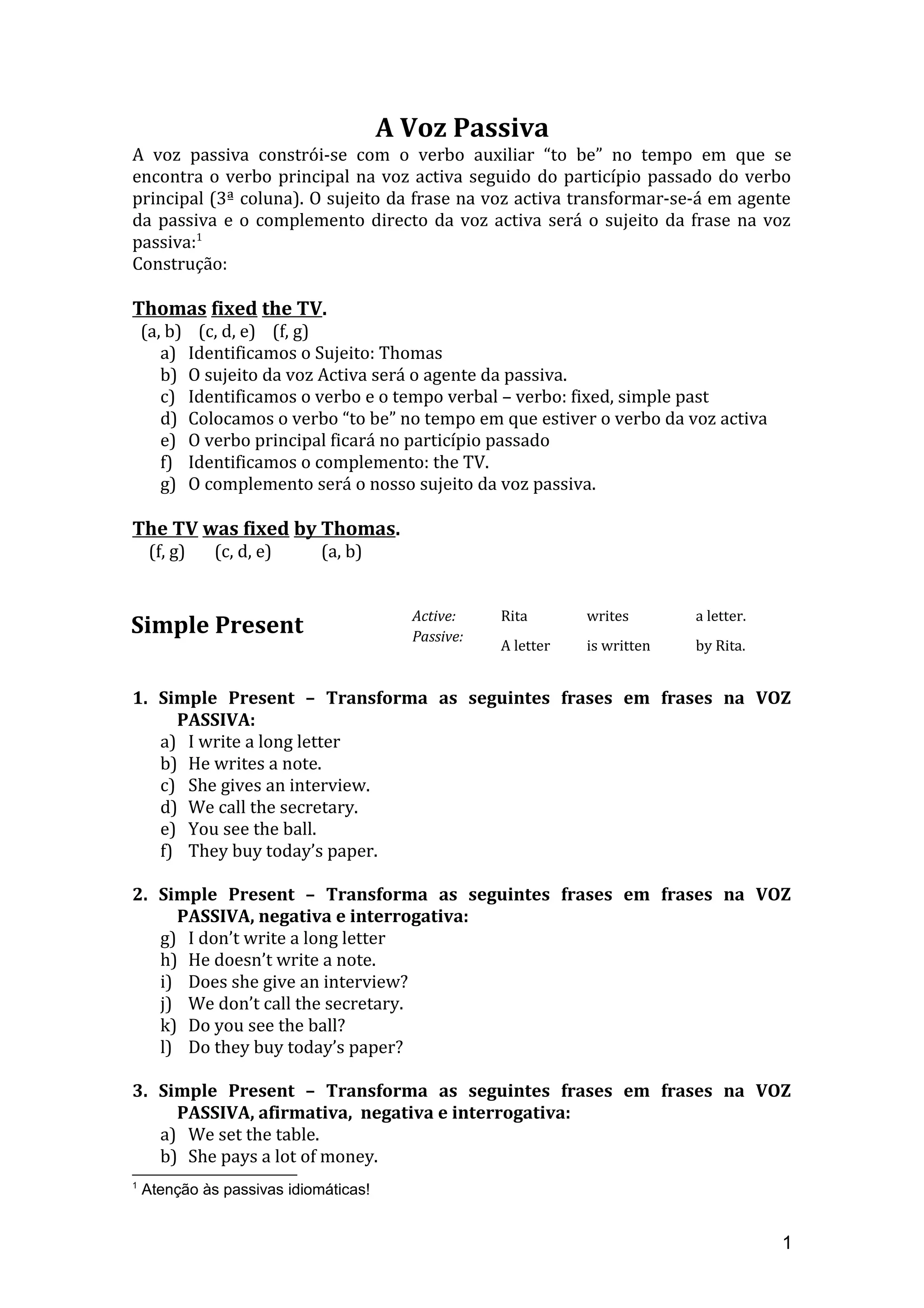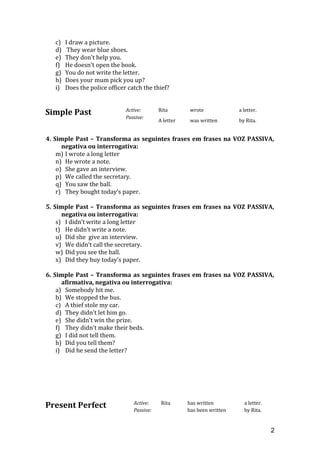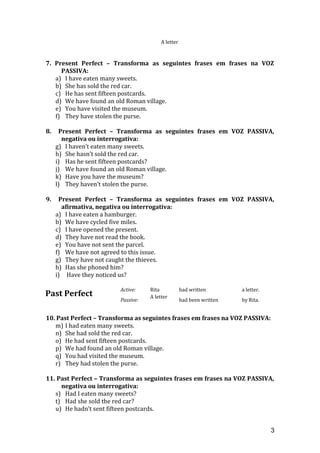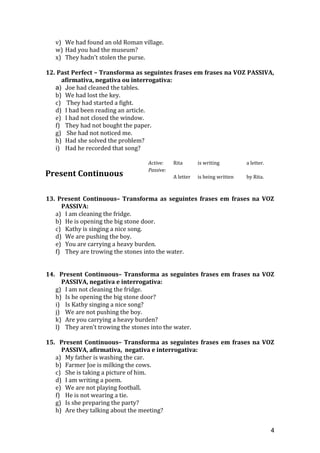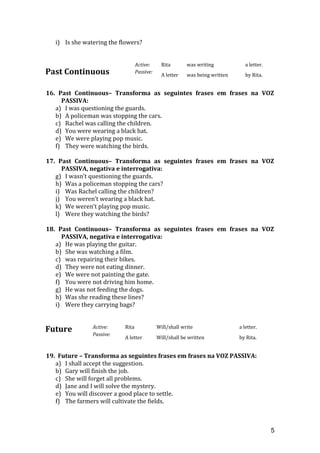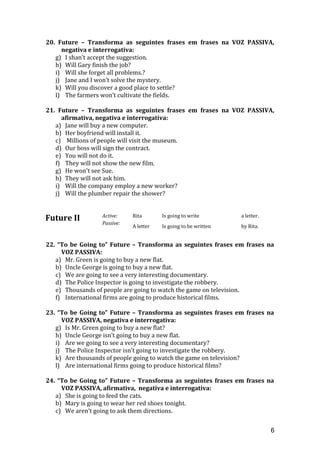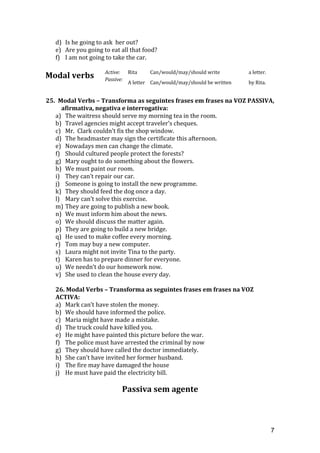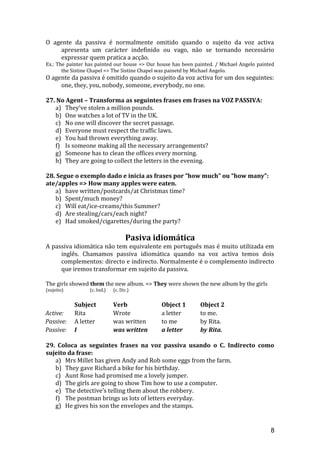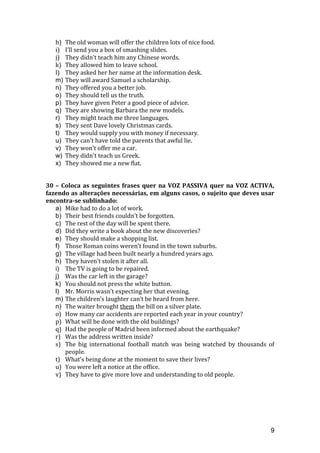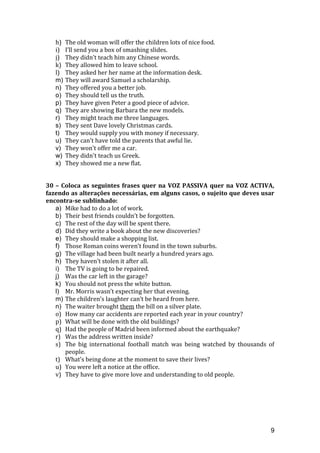The document discusses the passive voice in English and provides instructions on how to transform sentences from the active to the passive voice. It explains that in the passive voice, the subject of the active sentence becomes the agent and the direct object becomes the subject. The document then provides examples of transforming sentences between the active and passive voice for different tenses including the simple present, past, future, continuous, perfect and modal verbs. It also discusses omitting the agent and using idiomatic passive constructions.
